Bombay Exhibition Centre, Mumbai :
29 Sep – 1 Oct 2026
Bombay Exhibition Centre, Mumbai :
29 Sep – 1 Oct 2026
As consumer expectations evolve, so must the way we manufacture food.
This year,s Anuga FoodTec India Conference focuses on building a future-ready F&B industry - powered by smart tech, safety-first frameworks, and eco-conscious practices.
Gain actionable insights from industry pioneers.
Explore how innovation, compliance, and sustainability can co-exist to redefine operations.
 Grande, Hall No 3, NESCO Exhibition Ground
Grande, Hall No 3, NESCO Exhibition Ground
12:30 pm - 01:30 pm : Reimagining Food Processing for India@2030 – Smart, Agile & Consumer-Driven
India’s food processing industry is on a high-growth trajectory—set to reach INR 65,244.8 billion by 2033, growing at a CAGR of 8.38% from 2025. Contributing 12% to manufacturing GDP and 11% to agricultural value-add, it plays a vital role in rural employment, farmer incomes, and export growth.
But the sector is at a turning point. With rising demand for personalized, health-centric, and clean-label foods, manufacturers must shift from traditional systems to tech-driven, agile operations—leveraging automation, smart processing, and AI.
This session will explore how digital transformation is reshaping the industry, while addressing the operational and regulatory hurdles on the path to a smarter, future-ready food ecosystem.
12:30 pm - 01:30 pm
02:30 pm - 03:30 pm : Securing Food Trust – Strengthening Safety Protocols in the Digital & Distributed Era
As India’s food landscape becomes increasingly digitized and decentralized-with D2C brands, e-commerce marketplaces, and informal retail coexisting-ensuring food safety and authenticity has become a more complex and urgent challenge. Vulnerabilities such as counterfeiting, ingredient fraud, repackaging, and unverifiable sourcing are rising, especially in high-risk segments like nutraceuticals, artisanal oils, and premium spices. In this fragmented environment, building food trust goes beyond conventional QA protocols-it requires embedding intelligence, traceability, and accountability into every layer of the supply chain.
This session explores how technology, regulatory frameworks, and brand accountability can work together to safeguard integrity across the supply chain.
02:30 pm - 03:30 pm
04:00 pm - 05:00 pm : Engineering the Future Plate - Smart Tech Innovations in Indian Food Processing
India’s food processing landscape is on the cusp of a scientific revolution. As consumers demand cleaner labels, enhanced nutrition, and safer food formats, the industry is responding with a wave of deep-tech interventions-from cold plasma and enzyme-assisted extraction to HPP and precision fermentation. These technologies are no longer futuristic; they’re becoming the benchmark for premium, functional, and export-ready products. However, unlocking their true potential in India requires solving for commercial viability, operational scalability, and real-world adaptability-especially in cost-sensitive and infrastructure-light environments.
This session brings together the ecosystem to decode how science-led innovation can become the cornerstone of India’s next food-tech leap.
04:00 pm - 05:00 pm
11:00 am - 12:00 pm : Sustainable by Design: Packaging Tech for the Next Decade
Sustainability in India’s food processing sector is now mission-critical-driven by SDG commitments, regulatory push, and evolving consumer demand. From FMCG leaders to MSMEs, companies are rethinking packaging for climate impact, compliance, and global market readiness.
With tighter EPR mandates and greener trade expectations, packaging is shifting-toward mono-materials, bio-based trays, and smart, recyclable formats. Yet, India’s diverse climates, cost pressures, and infrastructure gaps present real challenges.
This session will spotlight practical innovations and collaborative models accelerating India’s shift to sustainable, SDG-aligned packaging in the food ecosystem.
11:00 am - 12:00 pm
12:30 pm - 01:30 pm : Designing Waste Out - Circular Solutions in Food Processing & Packaging
India’s food processing sector generates 25-30% of agricultural output as by-products-much of it underutilized due to weak recovery systems and limited innovation. As the world shifts toward sustainable value chains, India has the opportunity to turn this waste into a $15-20 billion circular economy by 2030-spanning functional ingredients, compostable packaging, bio-materials, and energy recovery.
With EPR, ESG, and climate mandates driving change, leading players are moving beyond compliance-redesigning systems for zero waste and closed-loop operations. Circularity is fast becoming a strategic, economic, and competitive imperative.
This session will spotlight how processors and packaging innovators are unlocking value from waste-showcasing scalable, India-fit circular models, addressing ground-level challenges, and highlighting collaborative pathways to align growth with environmental stewardship.
12:30 pm - 01:30 pm
02:30 pm - 04:00 pm : Startup Showcase – Redefining Food Processing with Bold Innovation
India’s food-tech startup ecosystem is beginning to fill long-standing innovation gaps in the processing landscape-especially for Tier 2/3-based factories and MSMEs. With mainstream facilities still grappling with outdated machinery, poor yield optimization, and low traceability, a new wave of entrepreneurs is bringing agile, retrofit-ready, and cost-efficient solutions to the forefront. This session offers a stage to some of the most promising early-stage startups who are not just experimenting, but building solutions tested on ground and ready to scale.
This session provides a platform to showcase breakthrough, scalable innovations that address ground-level needs in real factories, especially in MSME and Tier 2/3 contexts.
02:30 pm - 04:00 pm
11:00 am - 12:00 pm : Ingredients Reimagined: From Additives to Processing Aids - Innovation, Integrity & Impact
India’s food processing sector is undergoing a quiet transformation-driven by the demand for clean-label products, functional nutrition, and sustainable, scalable ingredient systems. Once dominated by synthetic additives and basic fortification, the ingredient ecosystem is now seeing an influx of bioactive compounds, fermented inputs, plant-based solutions, and reimagined traditional crops.
But with innovation comes complexity. From navigating the regulatory grey zones of processing aids and excipients to ensuring consumer trust in clean-label claims, the industry faces both opportunity and scrutiny.
This session will decode how India’s evolving ingredient, additive, and processing aid landscape is adapting to meet the functional, sensory, and safety needs of modern food systems-while remaining globally competitive and locally relevant.
11:00 am - 12:00 pm
12:30 pm - 01:30 pm : Beyond the Plateau - Practical Innovation Strategies to Scale Food Businesses in India
Many food brands experience strong early-stage growth, only to plateau when expanding beyond their initial product-market fit. This stagnation often stems from a reactive approach to innovation-flooding shelves with SKUs that aren’t backed by insight or solving real consumer problems. Without a system to link market intelligence, product development, and execution, innovation efforts tend to become fragmented, supply-driven, and disconnected from what the consumer actually wants.
This session offers a clear playbook for moving from ad-hoc launches to a scalable, insights-led innovation pipeline. It emphasizes precision, consumer focus, and seamless integration across R&D, marketing, and operations to build future-ready portfolios that grow with consistency, not chaos.
12:30 pm - 01:30 pm
Speakers
Kamlesh Kholiya
Sustainability Manager - South Asia Markets, Tetrapak
Pratap Kumar Swain
Head of R&D, Parle Biscuits Pvt Ltd.
Amit Kher
General Manager - Head Sales & Technology (Foods Business), Bühler India
Subhasish Das
Business Development Head for the Projects and OEM market segment, Forbes Marshall.
Dr. Kaushik Ramakrishnan
Director-Research, F1rst MR
Jitendra Joshi
Vertical Head for Life Sciences, Food & Beverage, and FMCG at Mitsubishi Electric India
Neville Dsouza,
National Sales Leader, End User, Discrete & Hybrid, Rockwell Automation India Pvt Ltd
Sanjay Khajuria
Former Director of Corporate Affairs and Sustainability, Nestlé India
Mr. K. Parameswaran
Business Manager with over 25 years of experience at Alfa Laval
Shashidhar Subramanya
Head of Corporate Technology and Application Centres, Middle East Africa and India Region, Bühler Group
Mr. Ashish Jogi
Co-founder and CEO of Fudtekey Solutions
Mr. Arun Om Lal
Senior Advisor: Hexagon Nutrition Ltd.
Jaishree Nilkhan
Head of External Relations, India and Middle East, General Mills India Private Limited
Dr. Prabodh S Halde
Head Global regulatory, Public Policy and Advocacy. Marico Ltd.
Mr. Bill Simos
Director of FJS Asia Pacific at JBT Marel
DR. RASHIDA VAPIWALA
Founder at LabelBlind
Shri S. Gautam
Mr. Pankaj Maheshwari
Vice President, Food & Water Division Hub for India, the Middle East, and Africa.
Prasad More
ASSOCIATE DIRECTOR ‑ ORGANIC AND SUSTAINABILITY
Dr Shatadru Sengupta
Chief Legal Officer (CLO) Hardcastle Restaurants Private Limited (McD)
Kshitij Thakur
Co-founder Agrograde Robotics
Debabrata Das
Chief Executive Officer Promeat
Kaushal Dongre
Chief Executive Officer Paawak Foods
Sandip Rajyaguru
AGM Sales & Marketing Jindal speciality chemicals india pvt. Ltd
Raghunath Sawant
Head of Operations Hexagon Nutrition Ltd
Ashutosh Gupta
National Sales Manager – F&B and FMCG OEM Mitsubishi Electric India Pvt. Ltd., Gurgaon
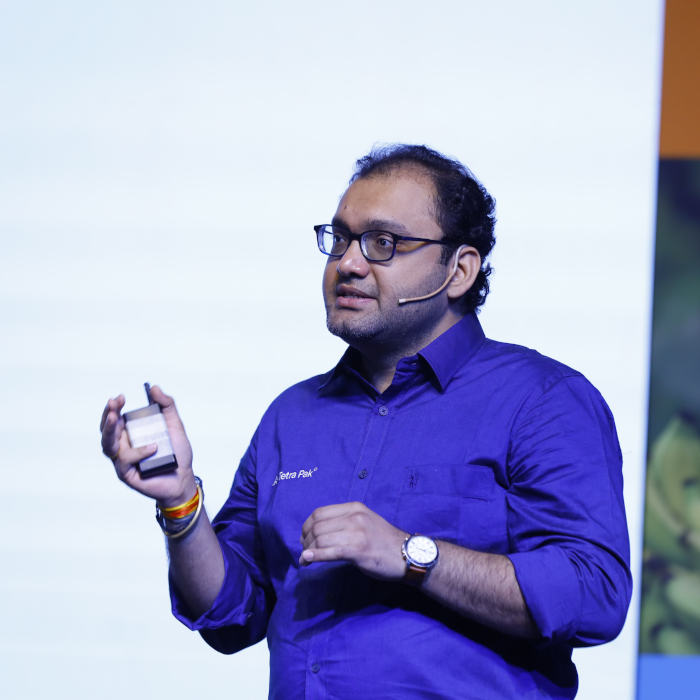
Mr. Kamlesh Kholiya
Mr. Kamlesh Kholiya
Sustainability Manager, South Asia Markets
Kamlesh is the Sustainability Manager at Tetra Pak South Asia and focusses on enhancing the used carton collection and recycling ecosystem in South Asia Markets. With 12 years of experience across packaging, chemical, finance and consulting industries, he comes with a wealth of knowledge about plastics circular economy, renewable energy and ESG ratings. His previous associations include ExxonMobil Chemical, MSCI, and Beroe Inc. Kamlesh has completed his Masters in Energy Engineering from NIT Trichy, and he is passionate about creating scalable impact on the ground on the sustainable development goals.
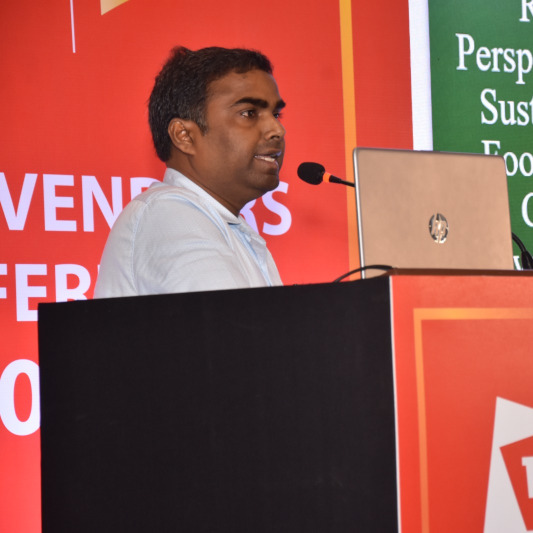
Pratap Kumar Swain
Name: Pratap Kumar Swain
Designation: Head of R&D, Parle Biscuits Pvt Ltd
Mob: 9742621268
Education background:
17 years’ experience in FMCG industry in product, Process and technology.
MTech in food engineering from IIT Kharagpur and MBA in Total Quality Management.
Currently working as head of R&D for Parle Biscuits Pvt Ltd.( Domestic and IB).Responsible for entire range of products in Biscuit’s, Cake, Rusk, Confectionery, Snacks and Atta.
Before Joining Parle I was with Balaji Wafers Pvt ltd as head of R&D. Responsible for entire range of products like Potato chips, Nachos, Stack chips, Noodles, Chikki, Wafer Biscuits, Extruded snacks and namkeens.
I was instrumental in setting up the new process for product like Nachos, Chiki, Wafer biscuit, Stack chips and Noodles.
Prior to that I was with Buhler as head product application. I was responsible for product trials in Roaster, Extruder, Rice mill, Flour Mill and Sortex etc.
I started my journey in 2008 with Vedic Pac systems. I played a huge role in start-up and commissioning of Candy line and Pneumatic conveying system.
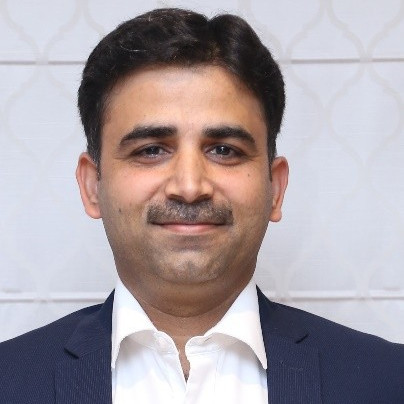
Amit Kher
Amit Kher
General Manager - Head Sales & Technology (Foods Business), Bühler India
Amit Kher brings over 23 years of expertise in the food processing industry. Since joining Bühler India, he has gained extensive experience across the rice milling, flour milling, extrusion, pasta, chocolate, and grinding & dispersion divisions, developing comprehensive knowledge of a wide range of equipment and process technologies.
Throughout his career, Amit has held various roles spanning technology, customer service, and sales, enabling him to deeply understand customer needs and operational challenges at the grassroots level.
Currently, Amit leads the sales and technology team for the Foods Business at Bühler South Asia. He is responsible for delivering technical solutions to customers and spearheading the development of innovative solutions.
Amit holds an MBA in International Marketing as well as a B.Tech. in Mechanical Engineering. He has further enhanced his expertise by completing the Leading Product Innovations course at Harvard Business School – Executive Education and the Advanced Leadership Program at Hult Ashridge.

Subhasish Das
Subhasish Das is the Business Development Head for the Projects and OEM market segment at Forbes Marshall.
Forbes Marshall partners with industry to build and sustain highly efficient plants, with a strong focus on Energy Conservation, Process Efficiency, and Environmental Sustainability. Forbes Marshall has consistently ranked as a Great Place to Work, and is a growing multinational with Indian roots.
Subhasish has been associated with the company for over 20 years now. He plays a pivotal role in establishing and driving strategies for greenfield projects, plant expansions, OEM collaborations, consultant engagement, and industry association relations. He brings in- depth knowledge of heating utilities and steam systems in the process industry, and is deeply committed to enhancing customer understanding of benchmark plants by applying innovative application solutions, sharing domain insights, and leveraging cutting-edge process technology.
Subhasish holds a degree in Mechanical Engineering (GCOE) and an MBA in Finance and Marketing, and has gained valuable experience in the process industry—particularly in steering Forbes Marshall’s Projects and OEM business toward impactful growth.
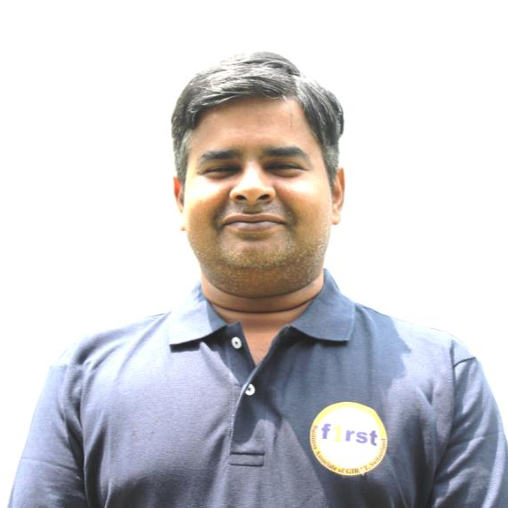
Dr. Kaushik Ramakrishnan
Dr. Kaushik Ramakrishna
Masters in Biochemistry, PhD in Food Biotechnology with a focus on developing a process for purification of steviol glycosides, Kaushik, is a Food and Beverage ingredient industry expert with over 12 years of market research and consulting experience. He has managed projects covering global market research for protein ingredients, savory, bakery intermediates, Emulsifiers, polyols, sweeteners, starches, preservatives, extracts, and many other functional ingredients. He brings a techno commercial perspective to the data that Giract's team of highly qualified analysts generate.

Jitendra Joshi
I am Jitendra Joshi Vertical Head for Life Sciences, Food & Beverage, and FMCG at Mitsubishi Electric India, bringing over 24 years of expertise in Industrial Automation. With a decade of focused experience in LS/F&B and FMCG, I have successfully led initiatives in project engineering, sales, product marketing, and business development.
In my current role I am responsible for delivering Advanced Automation/ Robotics and Digitization solution across varied set of Food and Beverages customers which will support them in increased throughput, improved quality and optimise cost.
I am Electronics & Power Engineering graduate with an MBA in Marketing from Pune University, I was instrumental in driving strategic growth, fostering customer partnerships, and delivering innovative automation solutions.
Outside of work, I love playing rhythmic musical instruments like the Tabla and drums.
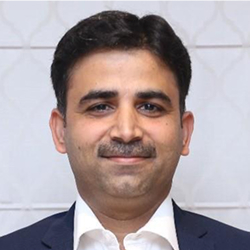
Amit Kher
Amit Kher
General Manager - Head Sales & Technology (Foods Business), Bühler India
Amit Kher brings over 23 years of expertise in the food processing industry. Since joining Bühler India, he has gained extensive experience across the rice milling, flour milling, extrusion, pasta, chocolate, and grinding & dispersion divisions, developing comprehensive knowledge of a wide range of equipment and process technologies.
Throughout his career, Amit has held various roles spanning technology, customer service, and sales, enabling him to deeply understand customer needs and operational challenges at the grassroots level.
Currently, Amit leads the sales and technology team for the Foods Business at Bühler South Asia. He is responsible for delivering technical solutions to customers and spearheading the development of innovative solutions.
Amit holds an MBA in International Marketing as well as a B.Tech. in Mechanical Engineering. He has further enhanced his expertise by completing the Leading Product Innovations course at Harvard Business School – Executive Education and the Advanced Leadership Program at Hult Ashridge.
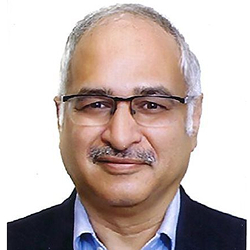
Sanjay Khajuria
Sanjay Khajuria is a former Director of Corporate Affairs and Sustainability, Nestlé India. He has over 35 years of professional experience, including 32 years with Nestlé in India and at its global headquarters in Switzerland.
He holds a law degree and began his career as an in-house counsel with Nestlé and later PepsiCo, before moving into leadership roles in Corporate Affairs and Sustainability. His expertise spans societal initiatives (CSR), sustainability strategy, government relations, media engagement, crisis management, public policy, and advocacy.
He currently serves as President of CIFTI-FICCI, an industry body representing the food processing sector in India, and is also an Honorary Advisory Member of GAN India (Global Apprenticeship Network – India Chapter).
Sanjay is a regular speaker on topics related to the development sector, food processing, and sustainability.
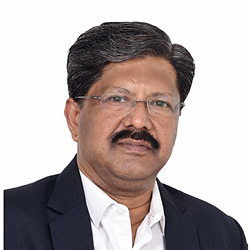
Mr. K. Parameswaran
Mr. K. Parameswaran
A seasoned Business Manager with over 25 years of experience at Alfa Laval India, K. Parameswaran is a Mechanical Engineer by training, with deep expertise in business development, technical and project sales, key account management, and international sales across India, Africa, and the Middle East. Currently heading the Prepared Food & Beverages business, he has a proven track record in managing complex sales operations, developing innovative applications, and driving strategic growth in sectors such as pharmaceuticals, biotechnology, brewing, protein, fruit processing, and energy. Recognized for his strong leadership and people management skills, Parameswaran has successfully led high-performing sales teams, built lasting customer relationships, and delivered high-value projects. Multilingual and globally oriented, he has participated in international leadership programs, reflecting his ongoing commitment to professional growth and excellence.
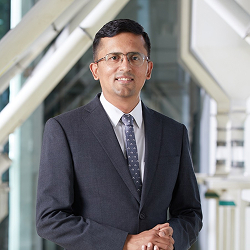
Shashidhar Subramanya
Shashidhar Subramanya
Head of Corporate Technology and Application Centres, Middle East Africa and India Region, Bühler Group
Shashidhar manages the South South Innovation Initiative at Bühler Group
covering the needs of India and Africa markets. He drives Process and Technology Innovations with solutions that are built ground-up in the region - for the region. His responsibilities at Bühler also include engaging with the start-up ecosystem in India, steering the activities at the Application and Training Centres in the region, furthering the Innovation Culture through employee engagement events and developing support functions for global R&D teams in India. He has been associated with Bühler since 2014.
Qualification:
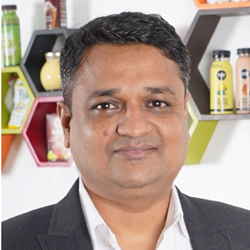
Mr. Ashish Jogi
Mr. Ashish Jogi is the Co-founder and CEO of Fudtekey Solutions, one of India’s leading contract research and innovation companies in the food and nutrition sector. He is widely recognized as Innovation Expert in the food and nutrition industry, both in India and internationally. Ashish is a pharmacy graduate, MBA, and patent professional by training. Before becoming an entrepreneur, he spent over a decade at Novartis, a Switzerland-based global healthcare leader, where he served as a patent attorney working on technology licensing of the most cutting-edge platform technologies in small molecules.
With a proven track record of transforming visionary concepts into commercially successful products, he has helped over 150 companies bring their ideas to life. Under his leadership, more than 450 products and projects have been successfully launched across 35 food and nutrition categories in more than 10 countries, including India.
Ashish is known for blending deep market insight with scientific expertise to drive innovation that is both impactful and consumer-centric. From startups to legacy brands and business conglomerates, he has been the go-to partner for organizations aiming to scale through innovation. His ability to deliver results across geographies and categories has made Fudtekey Solutions a name synonymous with speed, precision, and success in innovation, technology, research, and development.
In addition to Fudtekey, Ashish is also the co-founder of multiple food-tech and life sciences ventures, including MinoniM Life Sciences Pvt Ltd (drug discovery), Chime Food Innovations Pvt Ltd (specialty ingredients), and Healsty India Pvt Ltd (scientific clean-label functional foods). Each of these ventures reflects his commitment to science-backed, future-ready innovation.
A startup enthusiast at heart, Ashish actively mentors founders, invests in idea-stage and revenue-stage startups, and serves on the Innovation Council of ICT, Mumbai. He thrives on turning ideas into winning products—and believes that great innovation always begins with asking, “What if?”
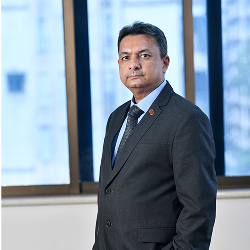
Mr. Arun Om Lal
Mr. Arun Om Lal.
Senior Advisor: Hexagon Nutrition Ltd.
Professor Industry Chairman : Nutraceuticals & Food Fortification.
Ex.President: Hexagon Nutrition Limited
Ex.Co Chair ASSOCHAM – National Council, Food Processing & Value Addition
Ex. Chairman ASSOCHAM: National Council Task Force – Nutrition & Food Fortification.
A visionary leader with an outstanding track record of successful business strategies, Mr. Arun Om Lal has cultivated staunch credibility in the Nutraceutical Industry. Possessing more than three and half decades of experience in the consumer durable and nutraceutical industry, Mr. Arun Om Lal is currently Sr.Advisor to Hexagon Nutrition Ltd and Nominated as the Professor Industrial Chair: Nutraceuticals & Food Fortification at NIFTEM – Kundli ! Focusing on ACADEMIA AND INDUSTRY PARTNERSHIP .
After completing his Master's in Marketing Management from Narsee Monjee Institute of Management Studies, Mumbai (1988-1991), he showcased his prowess in building some world-renowned brands. Mr. Arun has contributed to the success of brands like Morphy Richards (1992 – 1996), Jockey Int (1996 – 2000), Evian Natural Spring Water (2000 – 2003), Himalayan Natural Mineral Water (2003 – 2008), and Hexagon Nutrition (2009 to 2024)
Mr. Arun’s dedication and hard work had been acknowledged in the past as he was rewarded with many awards including "Best Health Care Entrepreneur" in 2016 & 2017. It was under his guidance that Hexagon Nutrition won the “Best Nutrition Company Award” in 2017 by ASSOCHAM Nutrition, Food and Safety Award.
For more than a decade, his work has been focused on the improvement of the nutraceutical industry and addressing the issue of malnutrition by stimulating the food fortification vertical.
Mr. Arun Om Lal has been working to deploy strategies to spread awareness about food fortification , LSFF and Nutrition , and bring it to the mainstream food industry. Apart from being a nutraceutical leader, Mr. Arun Om Lal was been elected as ASSOCHAM Co-chairman for Food Processing Industry and Value Addition ( 2017 to 2024 ) . He was also a national committee member of CII, FICCI, AIFPA National committees, and the Advisory Board of Center of Excellence for Food Fortification, NIFTEM which further states his prominence in the food and nutrition industry. His work in the nutraceutical industry is worth following and getting inspired from.
Mr.Arun Om Lal was the Managing Director of Sunrise Nutrition Pvt Ltd,Mumbai (2017 – 2024) and Currently an Co – Founder of CMAM ASSOCIATION , Delhi . DIN No. 07159367.
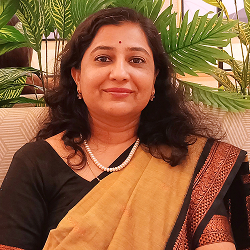
Jaishree Nilkhan
Jaishree Nilkhan
Head of External Relations, India and Middle East, General Mills India Private Limited
Ms Jaishree Nilkhan accomplished Food and Agri Business professional with focus on public policy. Presently she is working as Head of External Relations, India and Middle East for General Mills. In this role, she is responsible for leading the General Mills External Relations function to advance business interests through identification of key opportunities and risks, ensuring business continuity, implementation of relevant public affairs/advocacy strategies thereby contributing to the overall business growth. As member of India leadership Team, she partners with operational and expert teams to distil complex and ambiguous external issues.
Before General Mills, she has worked with Roquette as Head of Policy and Public Affairs. Previously she was associated with Ministry of Commerce and Industry initiative, Invest India and NABARD Consultancy services managing progressive roles and responsibilities in last 14 years.
Ms Jaishree possesses strong academic background with B Tech in Agricultural Engineering and M Tech with specialisation in Food Process Engineering.
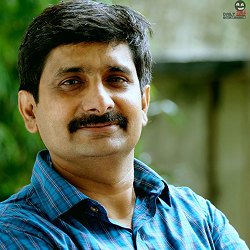
Dr. Prabodh S Halde
Dr. Prabodh S Halde , PhD ( Food Tech), Having total 30 years of experience, Now he is working with Marico Ltd from last 18 years and currently working as Head Global regulatory, Public Policy and Advocacy. Apart form Technical qualification, he has double post-graduation in management , MBA and MIRPM . He is Past President of Association of Food Scientists and Technologists of India CFTRI Mysore, and a renowned Food Technologist with a well-rounded, multi-disciplinary experience. He is chairman of western region for AIPFA India & Chambers for advancement of small and medium businesses. He is Joint secretary of SEA of India and Treasurer of PFNDAI. He is active member of various industry associations like CII,FICCI, IBHA etc.
He has a passion to nurture the young entrepreneurs. Prabodh has 30 years of string industrial experience& worked for Bakemans, ACC & Coca Cola India. He is on various board and renowned trainer in area of food processing, food safety and startup. He is part of smart protein committee by DBT government of India . He is part of Gujarat state food safety committee .
He is supporting food startups and mentor for over 25-30 food startups and through Trusted group activity he is supporting and mentoring over 200 startups & students
He was member of subcommittee for Ayush Ministry for covid task group and they published Ayush covid guidelines. He was Research Council member of CSIR-CFTRI during 2020-23. He was central advisory member for FSSAI Govt of India as a reprehensive of food industry. He was member of Niti Ayog Empowered group 2020-21.
He is on BOM studies for BMN/Khalsa/SNDT Polytechnic /ICT Aurangabad /ICT Kolhapur /K.G.Somya college/Pondicherry University/DYPATIL University etc . He is on advisory board on SVT SNDT & MIT Pune
He is National resource person for Fostac program of FSSAI. He has delivered over 300 National and international seminars. He has trained over 6000 food safety officilials in last 16 years for various FDAs and FSSAI as part of TOTO programs.
He has organized or part of organizing committee for over 200 national and international program/seminars over last 20 years.
An accomplished motivational and technical speaker, he has delivered more than a two hundred seminars and lectures at different conferences all across India and abroad on Food Processing / Quality and Food Safety. He has represented India 6 times for Codex Meeting from year 2012 to 2021.
His chosen area of expertise is Food Safety and Food Regulations. As recognition of his expertise, he was selected to be part of a PMO visit delegation to Tajikistan as a food industry expert in June 2015. In May 2017, he was invited by US state department for 21 days of exchange program at USA as food safety expert under Leadership exchange program. He is recipient of Globoil food safety award 2018 and Outstanding regulatory award 2018 by AIFPA India . He has been also awarded by MIT university pune for outstanding personality award 2019. He got National food safety ‘Eat Right Awards 2019’ in professional by FSSAI. He got special recognition award by ITC-FSCAN in year 2020. He is recipient of National Eminence award 2023 by CPRTTF. He has received outstanding work in eat right program by Hon, Government of Maharashtra in April 2023.
He has 3 patents in his credit as primary inventor. He has started various innovative programs in AFST Viz Project Ashirwad, Project Avishkar, Project Power talk and Project Parampara. All these programs are now popular at national level . He has written much-appreciated books on Food Safety regulations for sectors such as the Oil industry, Bakery Industry and the Retail industry. These informative books have proved to be very useful guides for Food Business Operators. He has also published 5 motivational books for students named ‘Prabodhika’ , recently 5th Prabodhika was blessed by HE Shri Ramnath Kovind, President of India. He also work for udaan welfare foundation for under privileged section of society.

Mr. Bill Simos
Mr. Bill Simos
(Director of FJS Asia Pacific at JBT Marel )
Bill has over all 35+ years of experience and specializing in Fruit Juice extraction and separation technologies. He has been an instrumental part in building and developing the Fruit & Vegetables Business Segment of JBT Marel Asia Pacific region and is currently based out of Hongkong. With decades of experience in New Technology integration and development Bill brings with him an in depth knowledge about India and overall Asia Pacific market.
Contact : bill.simos@jbtc.com
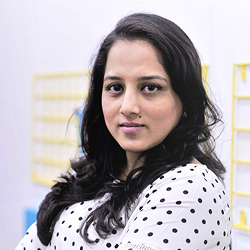
Dr. Kaushik Ramakrishnan
Dr. Rashida is the Founder of LabelBlind®; India’s 1st Artificial Intelligence led Digital Food Labelling Software Solutions, to strengthen the food regulations ecosystem in India.
Rashida is an expert in Food Labelling with a PhD in Food Science and Nutrition. She is featured on the Niti Aayog’s list of 75 leading Womenpreneurs on the occasion of Azadi ka AmritMahotsav
She is an Expert on the ASCI panel – Advertising and Standards Council of India - regulating claims made by food ads across national media. LabelBlind® was the principal investigator for the front of Pack Labelling Baseline study commissioned by FSSAI. She is also associated with the Food Future Foundation.
Her organisation works with top-notch brands like ITC Hotels, Abbott Healthcare, Reliance Brands, PVR Inox Cinemas, Tata Starbucks, Tim Hortons, NAB Foundation and more, to guide them on Food and Regulatory Compliances.
Rashida is also awarded the Junior Research Fellowship by the University Grants Commission, India and the Dr K.U.Naram award for a distinguished performance in academics at post-graduate level. Her association with academics continues as visiting faculty in leading universities, inspiring young students to fulfil their dreams with skills and self-belief.
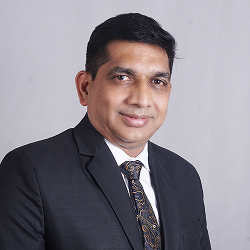
Neville Dsouza
National Sales Leader, End User, Discrete & Hybrid Rockwell Automation India
Neville Thomas Dsouza is a dynamic and results-driven business leader with nearly three decades of experience in driving growth, transformation, and innovation across diverse industries through strategic excellence in Marketing and Sales. As the National Sales Leader at Rockwell Automation India, Neville has played a pivotal role in shaping the company’s strategic direction and delivering consistent performance since 2010.
Throughout his career, Neville has held leadership roles across multinational organizations, serving as an industry expert in Consumer Goods, Life Sciences, Automotive, and Tire segments. He brings a unique blend of technical expertise and commercial acumen, consistently creating value for both customers and the organization.
His core strengths include developing and executing annual industry and regional sales plans, managing key accounts, and building strategic partnerships that drive sustainable growth. Known for his customer-centric approach, Neville excels in aligning business objectives with customer needs to foster long-term loyalty and success.
A dependable and inspiring team leader, Neville is deeply committed to mentoring and empowering teams to achieve operational excellence. His passion for performance, innovation, and collaboration makes him a compelling speaker and a respected thought leader in the technology and industrial sectors.
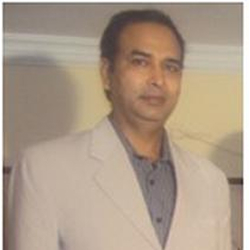
Shri S. Gautam
Shri S. Gautam joined Food Technology Division, BARC in 1995 through prestigious Training School Program. He completed his doctorate degree in science from University of Mumbai, and post-doctoral studies (2005-07) at University of Medicine and Dentistry, New Jersey, USA. Using radiation technology Dr. Gautam has worked extensively on the preservation of foods, development of special purpose ready-to-eat meal, as well as on the understanding the potential nutraceutical applications of dietary ingredients. He has carried out fundamental studies to reveal the mechanism of cell death in stressed bacterial cells. Dr. Gautam has served as the Chief Scientific Investigator for IAEA Coordinated Research Project (CRP) and members of National Project Team of different IAEA projects. He was instrumental in setting up a litchi treatment plant for preservation of litchi fruits at Muzaffarpur, Bihar. Dr. Gautam has 150 publications in peer reviewed journals and books, alongside many abstracts in conferences. He is currently serving as Head, Food Food Technology Division, Bhabha Atomic Research Centre, Mumbai and also Professor at Homi Bhabha National Institute (HBNI), DAE, Trombay, Mumbai. Dr. Gautam has been awarded highly prestigious DAE-Homi Bhabha Science & Technology Award (2016) for outstanding contributions in the area of Food Science and Technology as well as DAE Group Achievement Awards twice (2009 & 2011). Dr. Gautam is a fellow of Maharashtra Academic Sciences. He was associated with FSSAI as Chairman and member of scientific panels. Recently, Dr. Gautam addressed the Scientific Forum of IAEA General Conference at Vienna on the theme Atoms for Food.
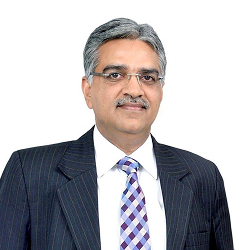
Mr. Pankaj Maheshwari
Mr. Pankaj Maheshwari
A seasoned business leader with over three decades at Alfa Laval, where he currently serves as Vice President, Food & Water Division Hub for India, the Middle East, and Africa.
He holds a B.Tech in Dairy Technology from the National Dairy Research Institute – Kurukshetra University, a Postgraduate degree in Business Management from the Symbiosis Institute of Business Management, Pune, and has completed Executive Management Training at Ashridge Business School, United Kingdom.
Since joining Alfa Laval India in 1990, Mr. Maheshwari has been instrumental in driving the company’s growth beyond national boundaries - establishing a strong presence across South East Asia, the Middle East, South America, Africa, Bangladesh, Nepal, and Sri Lanka. His leadership as All India Country Manager was pivotal in positioning Alfa Laval as a trusted partner across these diverse markets.
Renowned for leading from the front, Mr. Maheshwari champions a culture of customer focus, people development, and ownership. He is passionate about empowering teams by challenging them with greater responsibilities, recognizing excellence, and fostering an environment of fairness, trust, and high performance.

Prasad More
I am a postgraduate in Agriculture with a specialization in Post Harvest Management of Agricultural and Horticultural Crops, driven by a passion for reducing post-harvest losses through innovative product development and sustainable practices. With over a decade of experience in the Testing, Inspection, and Certification (TIC) industry, I currently serve as Associate Director – Organic & Sustainability at FoodChain ID India, where I lead programs in Organic, GlobalG.A.P., Regenerative Organic, ESG and other Sustainable Certifications.
As a qualified Lead Auditor for globally recognized standards including BRC, FSSC, ISO 45001, and various Organic certifications, I bring a strong foundation in auditing, training, process optimization, and quality management systems. My work bridges the gap between on-ground agricultural practices and global compliance frameworks, with hands-on experience in farm cultivation, organic farming, and complaince management.
I am committed to empowering agri-food businesses and farmers to build resilient, transparent, and sustainable supply chains, while promoting regenerative practices that benefit both people and the planet.
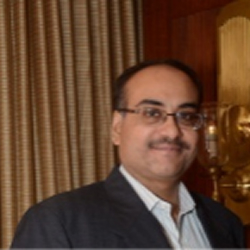
Dr. Shatadru Sengupta
Dr. Shatadru Sengupta is presently Chief Legal Officer at Hardcastle Restaurants Private Limited, (McDonald’s India West & South), subsidiary of Westlife Foodworld Ltd, a BSE-listed and NSE-listed company, of which he is the Company Secretary.
He has total post-qualification work experience spanning 32 years. He serves as General Counsel for the above companies and advises other companies in the group, in all areas of law.
He is a Mechanical Engineering graduate from VJTI, Mumbai, a Fellow Member of the Institute of Company Secretaries of India (FCS), a Bachelor of Laws (LL.B.) and Masters in Law (LL.M.) from Mumbai University, a Doctorate in Law (Ph.D.(Law)) from Mumbai University and an MBA (Operations) from ICFAI University. He also holds a Six Sigma Green Belt issued by KPMG.
His areas of expertise include property law, commercial laws, contract law, company law and allied corporate laws such as the SEBI Regulations, intellectual property laws, criminal law, cyber laws, labour laws, indirect and direct tax laws, consumer law, foreign exchange and foreign investment regulations, food law, law relating to weights and measures, environment law, competition law, import-related law, municipal laws and various kinds of litigation, covering civil, constitutional, criminal and consumer matters and other adversarial matters.
He is a member of the Executive Committee of the Confederation of Indian Food Trade and Industry (CIFTI), the food arm of FICCI and regularly contributes at its meetings.
He is Chairman of the Protein Foods and Nutrition Development Association of India (PFNDAI), as also a member of each of the Governing Board and of the Regulatory Affairs Committee of PFNDAI. He has delivered presentations at PFNDAI workshops and has had articles published in its journal.
He is associated with the All India Food Processors Association (AIFPA) and is a member of its Executive Committee, and has been invited to speak at a number of its seminars and workshops on food and regulatory topics.
He is a member of the Advocacy Committee and of the Sustainability Committee of the Retailers Association of India (RAI), and has participated as a speaker in its seminars.

Kshitij Thakur
Kshitij Thakur is the founder of Agrograde, an Indian startup reimagining post-harvest with AI, computer vision, and robotics. Agrograde is the first Indian startup to deploy AI-powered grading and sorting systems for onions and potatoes. Kshitij started Agrograde in 2017 to address deep-rooted problems in fresh produce supply chains and the lack of suitable technologies for Indian use cases. Since then, Agrograde's technologies have enabled transparency and quality-backed trust in some of the most challenging, fragmented, and trust-deficit supply chains. With over 70 machines installed across 12 different states and a cumulative daily processing capacity exceeding 23,000 quintals, Agrograde has been helping producers, FPOs, traders, and food processors use state-of-the-art technology to reduce and capture waste while increasing their processing bandwidth by up to 250%. Agrograde's innovations have been recognized by organisations like NITI Aayog, Social Alpha, IGKV, IIM A, Mahindra, MANAGE, Samunnati, and BSE.
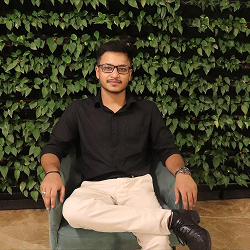
Debabrata Das
Debabrata Das is the Co-founder & CEO of ProPlant Foods, a pioneering food-tech startup shaping the future of sustainable, plant-based protein in India. With a background in Food Technology & Management, Debabrata has led ProMeat from concept to commercialization, securing prestigious grants, raising capital, and launching products across both D2C and B2B markets.
ProMeat is backed by IIT Bombay, SIDBI, and leading global accelerators and has received recognition, including the Fi Awards and several international innovation honors.
Debabrata also serves as the India Lead of the Sigma Squared Society, building a thriving community of high-potential founders across the country. He is deeply committed to sustainability, food security, and fostering an inclusive startup ecosystem that empowers young innovators to solve global challenges.
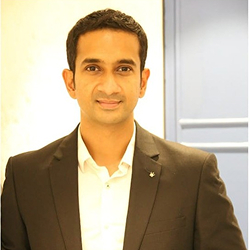
Kshitij Thakur
Paawak Foods — Overview
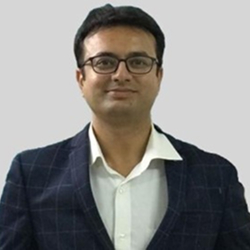
Sandip Rajyaguru
Sandip RAJYAGURU, who brings 14 years of extensive experience in the food, nutraceutical, and pharmaceutical industry. With a proven track record of driving growth and innovation, Sandip RAJYAGURU has held various technical and commercial roles in multinational companies, with a strong focus on the Asian markets. currently he is working at Jindal Speciality chemicals pioneer of making Inulin from chicory roots a greenfield project first time from India.
Throughout their careee Sandip a RAJYAGURU demonstrated expertise in product development, regulatory affairs, business strategy, marketing strategy, brand management, and team management.
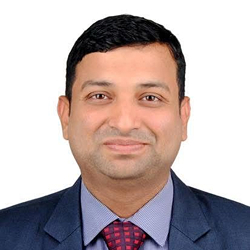
Raghunath Sawant
Raghunath Sawant is the Head of Operations at Hexagon Nutrition Ltd. He is a Food Tech Regulatory and legal professional with 20 years of experience in developing organizations Operations, Regulatory compliance, Quality assurance, Food Safety strategy, procedures and processes.
Has won the Best Food Safety Professional Award Winner 2018
He is Life Member of AFSTI (Association of Food Scientist and Technologists)
Has won the Best Operations Leader of the year 2024 at Future of Manufacturing Summit 2024
He is the Lead auditor for FSSC 22000, Environment Management System, OHSAS and ISO 9001:2015 QMS.

Ashutosh Gupta
Providing Industrial Automation solutions in F&B, FMCG & Packaging domain since last 28 years. Where I have successfully design, developed & commissioned machines at various national & international sites.
In my current role I am responsible for providing field proven solutions to various OEM’s to optimise the way they design, manufacture & service their machines by reducing time to market with continuous improvement. Thus, helping in sustainable long term business growth for both of us.
I have completed B.E. (Electrical & Electronics) from Bangalore University and an MBA in Marketing. I am instrumental in driving strategic growth, fostering customer partnerships, and delivering innovative automation solutions.
Outside of work, I love to play Cricket and follow “The Art of Living” centre.
